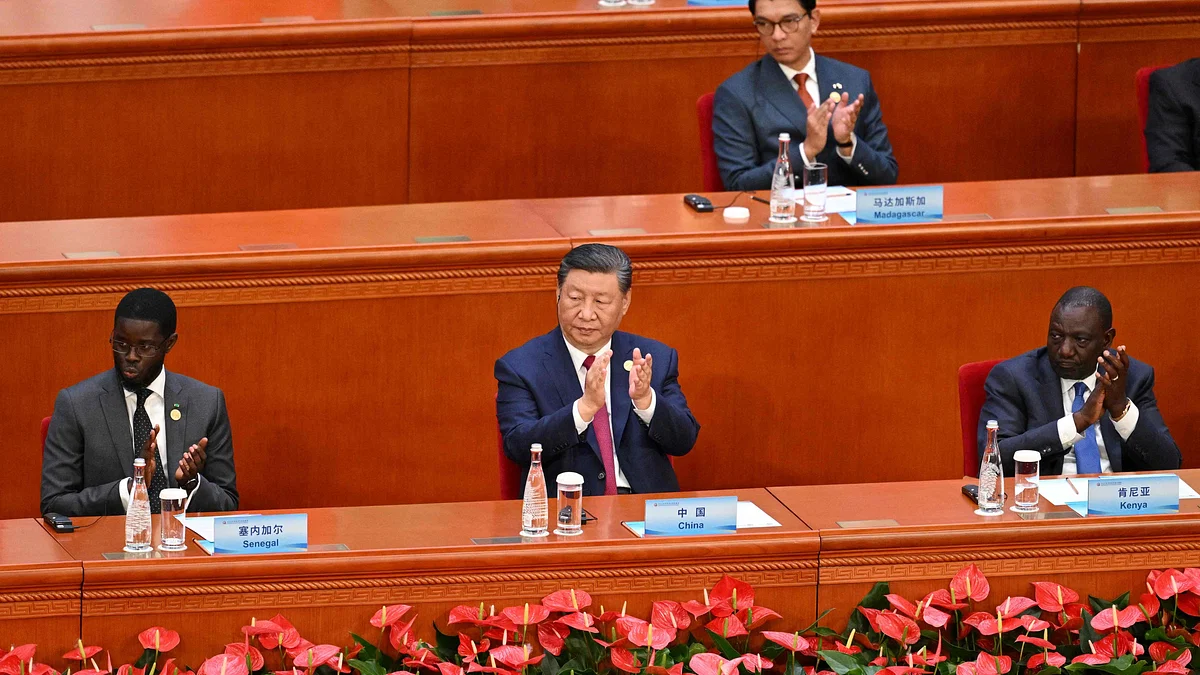China-Africa Summit
At the recent China-Africa Summit, President Xi Jinping unveiled a significant investment commitment of approximately $50 billion aimed at supporting Africa over the next three years.
This substantial pledge, made during the Forum on China-Africa Cooperation (Focac), underscores China’s strategic intent to bolster its relationship with the African continent amid evolving global dynamics.
The summit, attended by leaders from over 50 African nations, highlighted China’s position as a dependable partner for many African countries navigating complex international political pressures.
This partnership is particularly appealing to African governments, as China offers collaboration without imposing political conditions, making it a valuable ally for both military and civilian administrations across the continent.
The focus of China’s investment will be on infrastructure development, with a notable emphasis on green energy projects.
President Xi Jinping committed to supporting the establishment of 30 clean energy initiatives, reflecting a shift towards more sustainable technologies.
Additionally, there will be significant investments in the manufacturing sector, especially in the development of electric vehicles.
This emphasis on green technology is especially critical for Africa, a continent that has historically lagged behind Asia in terms of industrial development and technological advancements.
Despite the positive outlook, the summit also brought to light ongoing concerns regarding China’s influence in Africa.
Critics have raised issues about the potential for heavy debt burdens resulting from Chinese investments, as well as complaints about Chinese firms monopolizing skilled jobs and not adequately integrating local workforce talent.
These concerns highlight the complexities of China’s engagement with Africa and the need for a balanced approach that addresses both opportunities and challenges.
Nevertheless, many African governments appreciate China’s broad engagement strategy. The summit culminated in the Beijing Declaration, which outlines a vision for a “shared future” and sets forth plans for increased cooperation and job creation.
This declaration signifies a mutual commitment to enhancing economic ties and advancing developmental goals.
As China positions itself as a pivotal player in Africa’s green transition, the effectiveness of these investments and their impact on local economies will be closely monitored in the years ahead.
The commitment to green energy and infrastructure development is poised to influence Africa’s growth trajectory, making the outcomes of these initiatives of significant interest to both African nations and the international community.
I am a dynamic professional, specializing in Peace and Conflict Studies, Conflict Management and Resolution, and International Relations. My expertise is particularly focused on South Asian Conflicts and the intricacies of the Indian Ocean and Asia Pacific Politics. With my skills as a Content Writer, I serve as a bridge between academia and the public, translating complex global issues into accessible narratives. My passion for fostering understanding and cooperation on the national and international stage drives me to make meaningful contributions to peace and global discourse.










